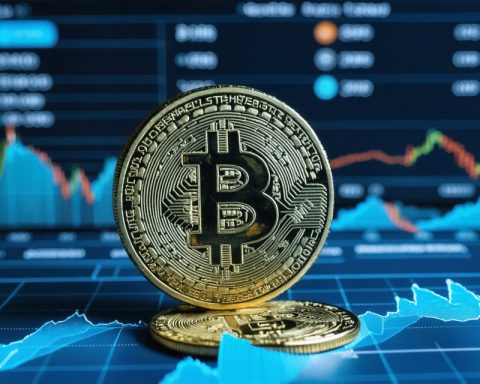In the high-stakes legal arena, Ripple Labs faces off against the U.S. Securities and Exchange Commission (SEC) in what many see as a pivotal showdown with far-reaching implications for cryptocurrency regulation. Initiated in 2020, the case focuses on whether Ripple’s sale of XRP tokens represents an unregistered securities offering, sparking intense debate over cryptocurrency classifications.
Potential Global Impact on Financial Access: The outcome of this case could significantly influence global financial accessibility. Ripple’s technology offers a platform for cheap, rapid cross-border payments, crucial for regions with limited banking infrastructure. Should Ripple triumph, it could pave the way for broader financial inclusion, allowing more people to participate economically. On the contrary, a loss may dampen efforts to provide equitable financial solutions.
The Innovation-Regulation Dilemma: At the heart of this dispute lies a critical question: How do we balance innovation with appropriate regulation? The introduction of smart contracts and decentralized finance (DeFi) technologies promises transformative economic opportunities but also presents new challenges. The verdict could prompt a reevaluation of how emerging technologies are regulated, potentially fostering an environment where innovation and investor protection coexist.
Revisiting Outdated Legislation: As cryptocurrencies evolve rapidly and cross international barriers, current regulatory frameworks may be lacking. The Ripple case could serve as a catalyst for countries to develop more adaptable and progressive policies, better aligned with technological advancements.
Ultimately, while the Ripple vs. SEC clash hinges on legal definitions, its implications could ripple across the financial world, either encouraging technological progress or reinforcing regulatory boundaries. The resolution will reveal much about the future direction of crypto governance.
The Ripple Effect: How Cryptocurrency Trials May Transform Global Finance
In an era where technology and finance are increasingly intertwined, the legal battle between Ripple Labs and the U.S. Securities and Exchange Commission (SEC) has become a focal point for discussions on the future of financial technology. While the case primarily hinges on the classification of XRP tokens as securities, it uncovers layers of potential impact on people, communities, and countries worldwide.
Decentralized Finance (DeFi) and Socioeconomic Dynamics
One of the unseen narratives in the Ripple case is its potential to redefine socio-economic dynamics through decentralized finance (DeFi). Unlike traditional finance systems, DeFi operates without intermediaries, offering a promise of greater transparency and reduced transactional costs. If Ripple prevails, it could bolster the movement towards DeFi, providing increased financial sovereignty and inclusivity to marginalized communities.
Consider rural areas in developing countries where access to banking services is minimal. The integration of Ripple’s technology could revolutionize how these communities engage in economic activities, from sending remittances to accessing credit. This approach could transition societies from dependency on traditional banking to streamlined, technology-driven economic participation.
Environmental Concerns: The Cryptocurrency Energy Debate
Beyond financial access, cryptocurrencies face criticism over their environmental impact. The energy consumption of blockchain networks, especially those relying on Proof of Work (PoW) like Bitcoin, is considerable. Ripple, using an alternative consensus mechanism, claims a smaller carbon footprint. However, the broader community is divided over whether the benefits of crypto adoption outweigh environmental concerns.
The case’s outcome might accelerate debates and initiatives focused on developing sustainable blockchain technologies, leading to innovations in energy-efficient consensus protocols.
Cryptocurrency and Crime: An Unfortunate Association?
Another angle often overlooked is the relationship between cryptocurrencies and illicit activities. With anonymity at the core of many crypto transactions, there’s potential misuse by criminal entities. Some critics argue that mainstreaming cryptocurrencies might inadvertently escalate these concerns. The Ripple case, while rooted in securities law, might influence broader policy decisions on tackling crypto-related crimes, emphasizing the need for international cooperation and advanced surveillance technologies.
Turning the Page: From Regulation to Innovation
Despite the controversies, the Ripple vs. SEC clash is a pivotal moment for outdated financial regulations. It urges a conscientious review of regulatory frameworks established long before the digital age. It prompts the question: Can policies designed for legacy systems accommodate the agile, borderless nature of digital currencies?
This brings both advantages and disadvantages. On one hand, proper regulation can protect consumers and investors, ensuring a healthier financial ecosystem. On the other, excessive regulation may stifle innovation, pushing promising projects offshore or into clandestine operations. Finding the right balance is crucial for sustainable growth.
Concluding Thoughts
As we await the resolution of Ripple’s legal challenge, the stakes extend far beyond the courtroom. Could this be a turning point that reshapes global financial landscapes, encouraging a more inclusive and innovative economy? Or will it highlight the limitations of current systems to adapt to the digital revolution?
For those interested in further exploration of blockchain technology and financial innovation, visit Ripple and Cointelegraph.












